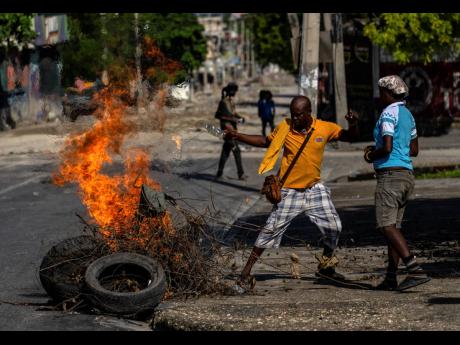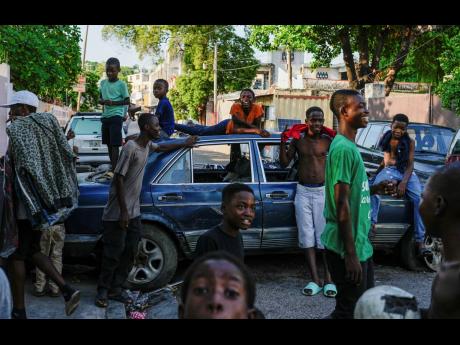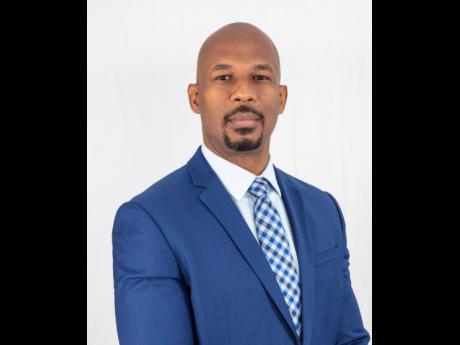Basil Jarrett | Echoes of Tivoli: Learning from Haiti’s turmoil
Following my column last week revisiting the May 24, 2010 security operations in west Kingston, several persons reached out to me to offer their recollection of the events and to commiserate on the fact that we seem to have forgotten how dire, how desperate and how dangerous a time that was. Some disagreed, however, that we are anywhere close to a repeat of “the incursion” and dismissed the recent Spanish Town gang activity as loose, uncoordinated and of no real moment. The latter is lawyer speak for irrelevant and unimportant. Others offered a more nuanced view, reminding me that there are almost 400 known gangs in Jamaica, some with very close political, financial and philosophical ties, and that at any moment, those ties could bind those gangs together against some common threat.
For the most part, however, the consensus seemed to be that Tivoli 2010 was a blip, that we are too civilised to have a repeat, and that the main protagonist in that conflict is currently languishing in a US prison cell. This view is possibly borne both out of a reluctance to want to consider that we could ever sink so low again, and possibly, too, out of fear that should there ever be a repeat, we may not be in a position to respond as effectively as we did. And it was here that I think I had one of the more interesting interactions coming out of that column–the question of our general preparedness for another such uprising.
HOW FAR FROM HAITI
Which turned my attention to Haiti and their ongoing travails with criminal gang uprisings. When news broke last week that the Kenyan army had finally received the green light to put boots on the ground in Haiti, it prompted me to take a deeper look at the security situation in our Creole-speaking next-door neighbour, and how they got to where they are now. Just to be clear, in no way am I suggesting that the motivations, antecedents and dynamics of Haiti’s crime and gang situation are anywhere near to ours.
Haiti’s issues stem from centuries of a complex interplay of socio-economic, cultural and political factors, stemming from its legacies of colonial exploitation and the struggle for independence. The deep scars on the country’s social fabric have endured to this day, as evidenced by the cycles of political instability, dictatorships, and foreign interventions that have further weakened state institutions and eroded the rule of law. Add in a mix of chronic poverty, widespread unemployment, and lack of access to education and social services, and you have a powder keg of problems just waiting to be ignited by a combustible environment filled with disenfranchised and vulnerable youth. And with corruption and a healthy supply of illegal firearms within arm’s reach, the end result is what we see happening today – a country ripped apart by gang violence and haunted by an estimated 2,500 deaths between January and March this year.
THE KENYAN SOLUTION
The ongoing crisis has led to the pending security response from Kenya and other countries, but that has not gone down well with Haiti’s bandits. Just as the security agreement authorising the Kenyans to enter Haiti was signed, Haitian gangs responded with violent and coordinated attacks targeting crucial and critical infrastructure, including the airport in Port-au-Prince. The gangs also swelled their ranks by freeing thousands of prisoners from two jails, and dared the international community to come get some of this.
But hang on a second. Is this narrative really that far from ours? Didn’t we, or rather, don’t we have a similar proliferation of gangs driven and fed by idle, unattached, disenfranchised youth from crime-riddled, poverty-stricken communities? Don’t we also have a problem with corruption and an unrelenting supply of high-powered weapons and thousands of rounds of ammunition in circulation? And in 2010, didn’t the gangs of Tivoli recruit criminals from as far away as Westmoreland to help fight for Dudus? Furthermore, Haiti’s gangs used to make their living off the largesse and support of politicians during elections, but have since become much more autonomous, self-reliant and self-financed? Sounds familiar?
Could it happen here?
Again, in no way am I saying that Haiti and Jamaica are mirror images of each other, but there is more than a slight resemblance. Certainly, we aren’t Haiti, and the situation there could never be conceivably replicated here, could it? I mean, our political system is very stable. We have relatively strong democratic institutions that, despite their much-publicised flaws, still provide a level of governance and rule of law. Furthermore, our economy is more diverse and developed, offering better employment opportunities and social services; and our civil society and community organisations play a crucial role in social cohesion and crime prevention. All of these factors are true.
But there is also one very important element that we tend to overlook when we search for reasons why Jamaica could never be Haiti – our law-enforcement agencies, police, and in particular, our military.
JDF TO THE RESCUE
All of the previous factors play a strong deterring role in maintaining law and order. But when something inevitably breaks, it is our police and soldiers who we turn to, to put the pieces back together. One of the most apparent failures in Haiti is that of its security apparatus and its inability to mount adequate responses to the crime and armed violence. How else could their police force, and more importantly their military, get overrun by a set of armed but untrained civilians? How could they have capitulated so easily, giving up the country to terrorists?
You see, a country’s military is supposed to be its last line of defence. The minute that last line of defence is compromised or no longer has the confidence of its people, then you have a real problem on your hands.
In 2010, it was the JDF that was the last line of defence in retaking west Kingston, saving countless civilian lives and restoring the authority of the State. It was the JDF that pulled Jamaica back from the brink of anarchy without us having to ask Kenya for help. Lest we forget, indeed.
It is quite easy to erase unpleasant memories, especially after some time has passed. But the ongoing events in Haiti right now should remind everyone that a lawful society is not a guarantee, but rather a privilege that should be diligently protected and defended–lest we descend into chaos and lawlessness like our neighbours next door.
Major Basil Jarrett is a communications strategist and CEO of Artemis Consulting, a communications consulting firm specialising in crisis communications and reputation management. Follow him on Twitter, Instagram, Threads @IamBasilJarrett and linkedin.com/in/basiljarrett. Send feedback to columns@gleanerjm.com



